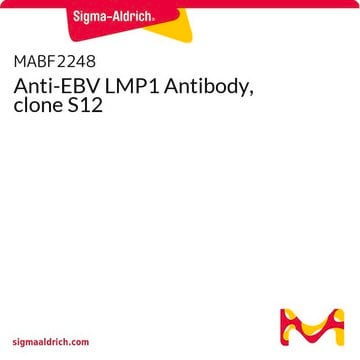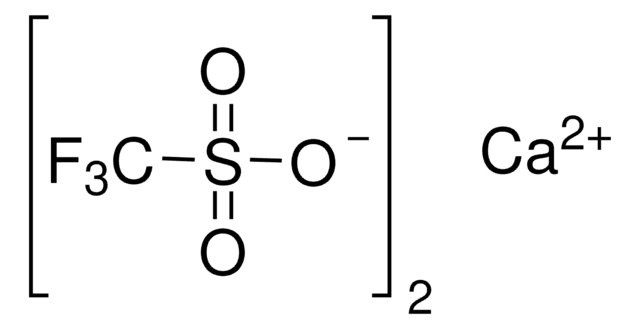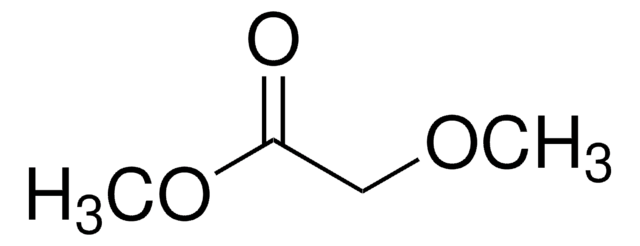MABF2302
Anti-HLA-A02:01 EBV-LMP2A Antibody, clone MAB243
Synonyme(s) :
Latent membrane protein 2
About This Item
Produits recommandés
Source biologique
mouse
Niveau de qualité
Conjugué
unconjugated
Forme d'anticorps
purified antibody
Type de produit anticorps
primary antibodies
Clone
MAB243 (also referenced as L2), monoclonal
Poids mol.
calculated mol wt 53.01 kDa
Produit purifié par
using protein G
Espèces réactives
human
Conditionnement
antibody small pack of 100 μg
Technique(s)
ELISA: suitable
flow cytometry: suitable
immunocytochemistry: suitable
immunofluorescence: suitable
western blot: suitable
Isotype
IgG1κ
Séquence de l'épitope
C-terminal
Numéro d'accès Protein ID
Numéro d'accès UniProt
Conditions d'expédition
ambient
Modification post-traductionnelle de la cible
unmodified
Informations sur le gène
human ... LMP2(3783751)
Description générale
Spécificité
Immunogène
Application
Evaluated by Flow Cytometry in T2 cells pulsed with LMP2 peptide (426-434).
Flow Cytometry Analysis (FC): 1 μg of this antibody detected HLA-A2-EBV LMP2A in one million T2 cells pulsed with LMP2 peptide (426-434).
Tested Applications
ELISA Analysis: A representative lot detected HLA-A02:01 EBV-LMP2A in ELISA applications (Lai, J., et al. (2016). Blood. 128(10):1396-407; Lai, J., et al. (2017). Sci Rep. 7(1):9923).
Immunohistochemistry Applications: A representative lot detected HLA-A02:01 EBV-LMP2A in Immunohistochemistry applications (Lai, J., et al. (2016). Blood. 128(10):1396-407).
Western Blotting Analysis: A representative lot detected HLA-A02:01 EBV-LMP2A in Western Blotting applications (Lai, J., et al. (2016). Blood. 128(10):1396-407).
Flow Cytometry Analysis: A representative lot detected HLA-A02:01 EBV-LMP2A in Flow Cytometry applications (Lai, J., et al. (2016). Blood.;128(10):1396-407; Lai, J., et al. (2017). Sci Rep.;7(1):9923).
Immunofluorescence Analysis: A representative lot detected HLA-A02:01 EBV-LMP2A in Immunofluorescence applications (Lai, J., et al. (2016). Blood. 128(10):1396-407).
Immunocytochemistry Analysis: A representative lot detected HLA-A02:01 EBV-LMP2A in Immunocytochemistry applications (Lai, J., et al. (2016). Blood. 128(10):1396-407).
Note: Actual optimal working dilutions must be determined by end user as specimens, and experimental conditions may vary with the end user
Forme physique
Stockage et stabilité
Autres remarques
Clause de non-responsabilité
Vous ne trouvez pas le bon produit ?
Essayez notre Outil de sélection de produits.
Code de la classe de stockage
12 - Non Combustible Liquids
Classe de danger pour l'eau (WGK)
WGK 1
Point d'éclair (°F)
Not applicable
Point d'éclair (°C)
Not applicable
Certificats d'analyse (COA)
Recherchez un Certificats d'analyse (COA) en saisissant le numéro de lot du produit. Les numéros de lot figurent sur l'étiquette du produit après les mots "Lot" ou "Batch".
Déjà en possession de ce produit ?
Retrouvez la documentation relative aux produits que vous avez récemment achetés dans la Bibliothèque de documents.
Notre équipe de scientifiques dispose d'une expérience dans tous les secteurs de la recherche, notamment en sciences de la vie, science des matériaux, synthèse chimique, chromatographie, analyse et dans de nombreux autres domaines..
Contacter notre Service technique







